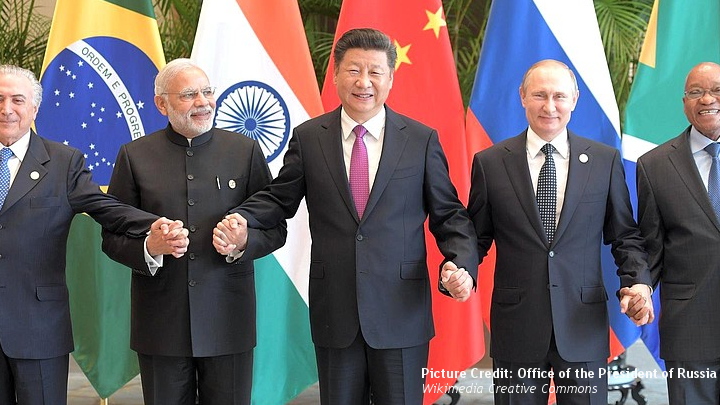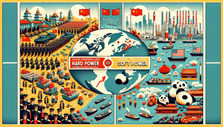Economic Dreams and Geopolitical Realities: How will the India-China-Russian Dynamic Unfold in Greater Central Asia?

Niklas Swanström and Julian Tucker
Since the collapse of the Soviet Union, Greater Central Asia (GCA) has undertaken various efforts to reshape the political and economic landscape of Asia. This has driven a process by which old equations in areas such as energy supply networks, security doctrines and government-civilian relations to name but a few, are being re-examined. The shift in the balance of power on the Asian continent, coupled with technological innovation and economic recalibration has triggered a myriad of changes – not least through the actions of new, and remerging players throughout GCA and its neighboring regions. This chapter focuses on the ways in which the strategic calculation of traditional great powers echo and build upon the policy position of the past, and feed into a process of geopolitical reinvention. Specifically, the focus is on Russia, China and India – this is not to disregard or overlook the initiatives or agency of the GCA states themselves nor those of regional powers, such as Iran, Pakistan and Saudi Arabia, but rather to reflect upon the policy trajectories of states which view themselves as global powers and how their strategies intertwine at the heart of Asia.
Related Publications
-
ISDP Annual Report 2023
ISDP’s Annual Report for the year 2023. We look back on 2023, a year in which tensions and conflicts captured the strategic space in ISDP’s focus areas, making headlines around […]
-
The US and EU, and the Emerging Supply Chain Network: Politics, Prospects, and Allies
The Global Supply Chains have evolved from simply logistical achievements to being the bedrock of the global economy. Driven by technological advances and geopolitical shifts, this transformation underscores the critical […]
-
Navigating the Indo-Pacific: How Australia and the EU Can Partner for Peace, Stability, and Prosperity
To navigate the choppy waters of the Indo-Pacific, the EU and Australia must be on the same wavelength regarding shared interests in rules, values, and an open and liberal economic […]
-
Japan’s Energy Security in the Persian Gulf: Caught Between New and Old Challenges
The goal of this paper is to investigate the evolution of Japan’s energy strategy in the Persian Gulf and understand how intra-Asian competition for business opportunities in the region can […]
-
Hegemony at a Crossroads: The Inverse Dynamics of China’s Global Strategy
Here is my bold statement. Hard power projection decimates soft power but only for authoritarian states. In the early 21st century, I was living in Beijing and at that time […]




